Hair loss can be difficult to stop once it starts, but that doesn’t mean you should hit pause. Scalp micropigmentation (SMP) and follicular unit extraction (FUE) treatments can be combined for a very natural look at a reasonable cost compared to a transplant only procedure.
SMP and FUE combined treatments are trending for men who want the most natural hair restoration.
Hair restoration methods like hair transplants offer to give you a full head of hair, but so many grafts can be very expensive, which is why scalp micropigmentation is used to add density. The combination of SMP and FUE procedures makes it easier to get your thickness back without a full hair replacement.
FUE and SMP Together
SMP and FUE treatments combine the power of pigmentation (or tattooed follicles) with follicular unit extraction (FUE) transplant for additional thickness and appearance of natural hair growth. This latest treatment was developed by doctors who wanted to add even more detail after an FUE transplant.
Scalp micropigmentation uses the same technology as a tattoo needle to implant pigments on your scalp using a microneedle lightly.
The pigments look like small hair follicles or tiny dots under your skin, so it appears as though you have a buzz cut or aids in the appearance of thicker, natural hair.
Here’s what scalp micropigmentation looks like without FUE or FUT surgery.
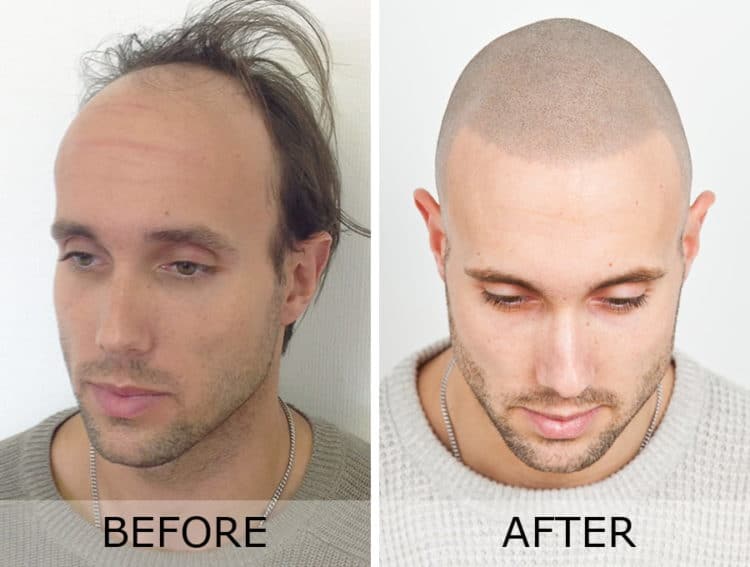
FUE transplant implants healthy hair follicles into areas on your scalp that are thinning or completely bald. These hair follicles are grafted on through a rapid implantation process performed under local anesthetic.
FUE is more popular than its counterpart follicular unit transplant (FUT) because it doesn’t have the same scar at the back of the head. However, scalp micropigmentation can be used to drastically reduce the appearance of a hair transplant (FUT) scar.
SMP and FUE Combined Process
Doctors will first go through with the FUE process first, transplanting hair follicles to regrow your hair. After your scalp has healed, doctors will then access if you need additional scalp micropigmentation to fill in the gaps.
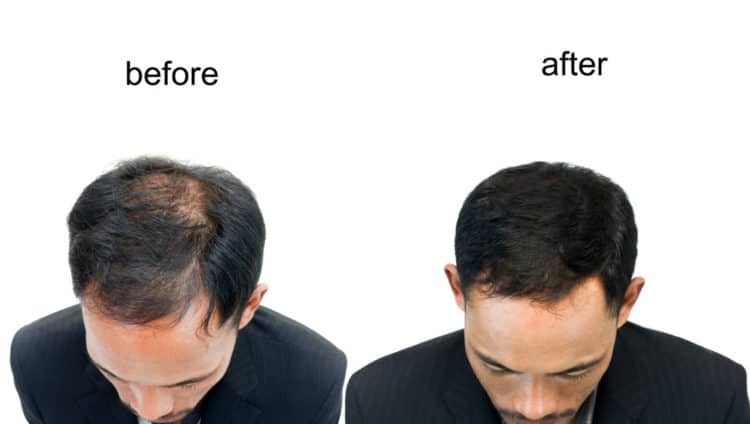
FUE typically takes 1 to 2 hours, and scalp micropigmentation can be performed 2 to 3 weeks following your FUE. The SMP process takes between 2 and 4 hours depending on how many pigments you need to fill in thinning areas.
Risks of Mixing SMP and FUE
Before getting any procedure, you should check the doctor’s credentials and look at their before/after gallery first. What do reviews say on Google? It’s best to really analyze the doctor’s work before even going in for the consultation.
If you suspect that a doctor doesn’t have the right experience, then don’t move forward. Botched FUE transplants can be very horrendous and lead to permanent damage.
Overall, FUE is less risky than FUT because it doesn’t involve an invasive cutting of the scalp or an elongated scar.
There are also multiple transplant methods, including the Choi implanter pen, that make it very quick to implant follicles in an almost painless application.
There will be some pain after both the FUE and scalp micropigmentation procedure. Both require the use of needles, so there are some aftercare guidelines to follow to avoid infection and other problems.
SMP FUE Before and After Pictures
When SMP and FUE combined treatments are done correctly, thicker, fuller hair is easy and natural to achieve. Here’s a look at the results from SMP and FUE combination treatments.
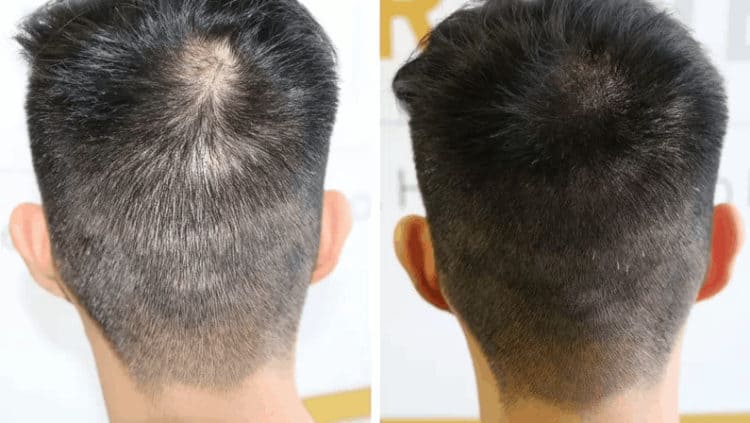
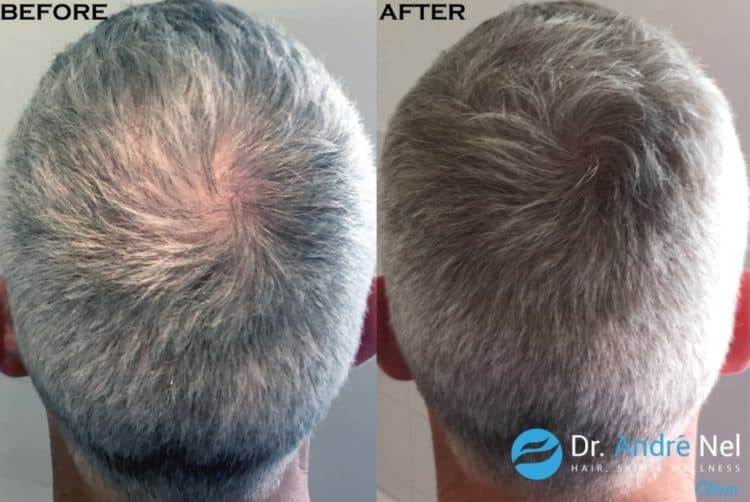
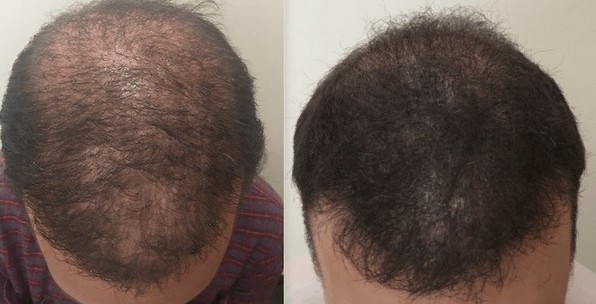
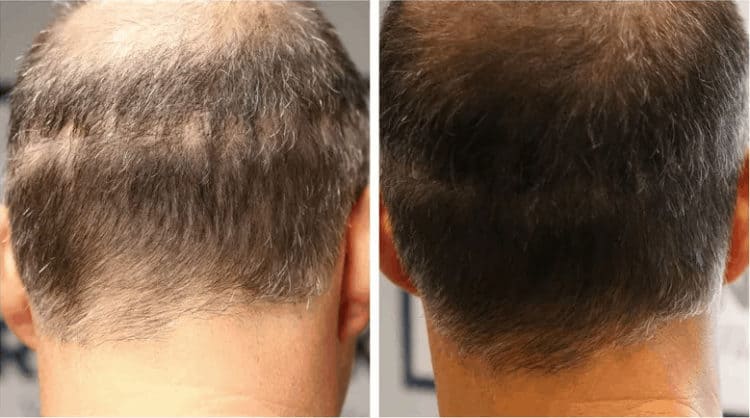
FAQ
How Long After FUE Can I Get SMP?
It’s possible 6-8 weeks after FUE for a patient to be ready for SMP. However, most clinicians typically recommend individuals wait at least 6-12 months after FUE before attempting SMP.
The time also depends on factors like individual medical history and degree of recovery.


